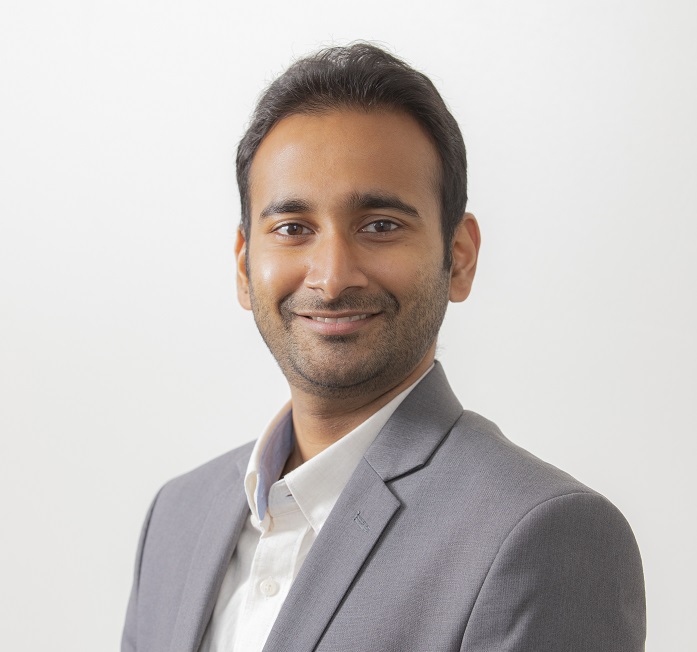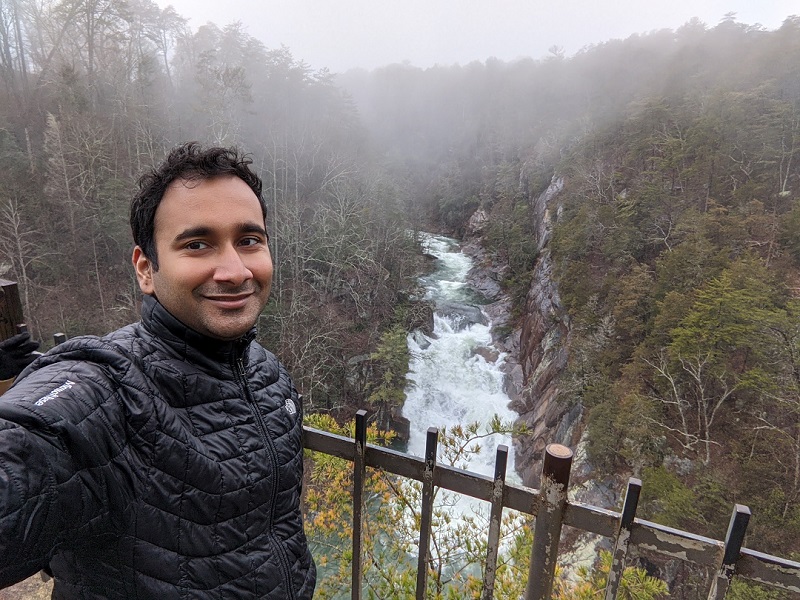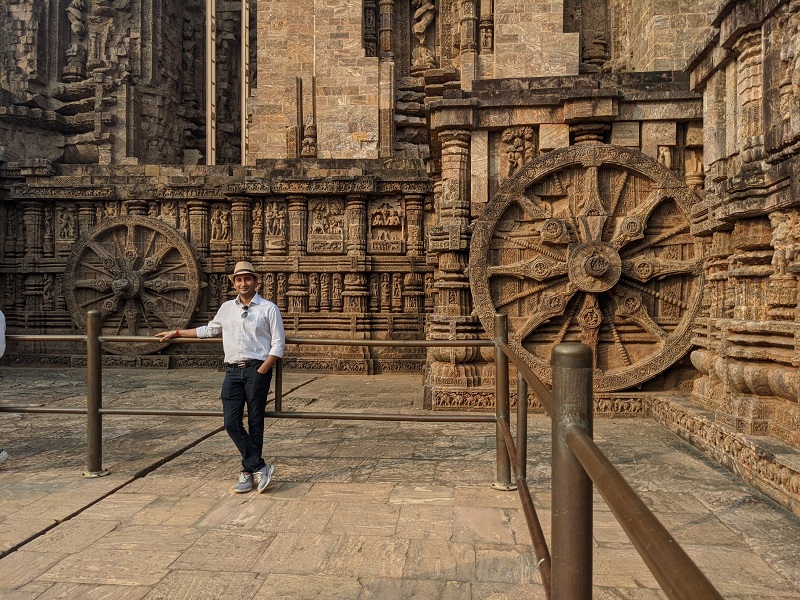(January 29, 2022) Combating the bad guys in cyberspace and making the internet safe — is a mission Srijan Kumar chose for himself. Fraudsters, troll armies, extremists or hate mongers — the list of his adversaries is long. Over the years, the 29-year-old has built an arsenal of algorithms to take on the “moving targets” and counter them with precision. His adversaries may be smart but Srijan Kumar is smarter.
Misinformation, hate speeches and coordinated campaigns, especially against minorities, women and authoritative figures in cyberspace triggered his cyber expertise. “I came across harassment and trolling on Slashdot and Wikipedia, where people were fighting about their stance on a topic and being nasty and abusive. Such harmful patterns had creeped into YouTube comments, Facebook groups, Reddit raids and Twitter firestorms as well. I asked myself, ‘What can I do?’” says Srijan, the assistant professor at the School of Computation Science and Engineering at Georgia Institute of Technology. The ‘Forbes 30 under 30’ was given the honour in science (2022) for his extraordinary work in social media safety and integrity.

An algorithm to diffuse hate
Cyber space expert Srijan’s algorithms detect, predict and mitigate dangerous content online and the bad actors responsible. “Sixty per cent have seen someone else being harassed online. See something, say something. Speak up when you witness anything bad online,” Srijan Kumar wants the world to do. The computer scientist has not only developed cutting-edge solutions for early identification, prediction and mitigation, he has created several AI, ML and data science methods to tackle fake reviewers on e-commerce platforms, innovated technologies to create smart and robust detection systems that bad actors and adversaries cannot fool.
Born and brought up in Ranchi, Jharkhand, “a nice small town,” cyber space expert Srijan saw both the good and bad side of the internet. Facebook was becoming popular just as he went for under graduation to IIT Kharagpur in 2009. “I saw first-hand, the wonders of global knowledge available with a single click. You might remember, phone companies charged 50 paise per SMS while FB messaging was free. So, I would talk to friends from school through FB and Google chat,” smiles Srijan, speaking exclusively to Global Indian.
Being the change he wanted to see
“I always wanted to create something new so I became a computer scientist. Never thought I would create new algorithms though,” quips the innovator of social network, natural language processing, multimodal (image + text) techniques to create next generation technologies that can empower safety, integrity and well-being online. “My name means creation,” he reminds us. In his early years, Srijan loved playing computer games, – Road Rash and Need for Speed. “My chacha (uncle) was a computer engineer. I wanted to learn how to create games and code,” recalls the Cyber space expert, who is also associated with investigating the social and technological factors that exacerbate the threats that harm others.


Growing up in the age of social media and having an Orkut account in high school, Srijan was particularly saddened by the toxic environment in cyberspace. “Online anonymity makes people worse. We can take steps to ensure that despite this, online safety is maintained,” feels Srijan, who went to the US for an MS and PhD at the University of Maryland (2013). He graduated in 2017. “People have to do due diligence before sharing anything that they come across. Most times, people share because they think it will be useful to others and they don’t have bad intentions. But they should search and ensure trustworthiness before posting,” feels Srijan, a postdoctoral researcher from Stanford University – incidentally his “dream” school.
Learning to be true
Technology is equally responsible, feels Srijan, who was a visiting faculty researcher at Google AI before joining Georgia Institute of Technology in January 2020. “Hate is a strong emotion, attracting more likes. Such posts are boosted automatically by recommender systems. There is a need for a change in incentives of platforms. Instead of optimising for engagement (like shares, reshares), they should optimise for well-being. It should be part of the equation,” stresses the idealist, who is for a more societally-aware technology. The computer wizard says besides creating better algorithms, AI/ML systems for detection, prevention systems and early warning systems to flag harm and bad activities early, there is also a need to train people to be more aware and sceptical of online content.
Research by the cyber space expert has shown that counter speech – messages made that push back against hate messages, reduces hateful messages from spreading and new ones too. “People have the power to shape online narratives and the cybersphere, by participating in a civil manner and ensuring others do too,” feels the genius who says that as scientists, they have to be one step ahead of the attackers.


The boy who went to Delhi Public School, Ranchi, has created a depth of knowledge on cyber safety. A lot of his work is about understanding the evolving attack surface, identifying vulnerabilities of existing detection systems, developing creative ways to generate next generation systems. “Cyber-safety is also a people-problem. I also work on understanding the causes behind why people fall for misinformation, what the impact is and the interventions we can develop to mitigate damage. How can we involve humans-in-the-loop to overcome this crisis,” informs the cyber space expert, a recipient of the Facebook Faculty Research Award and Adobe Faculty Research Award.
His research has been used by Flipkart and even influenced Twitter’s Birdwatch platform. “They are two different research pieces and both are quite innovative. Fake reviews is a persistent problem on e-commerce platforms including Flipkart. People lose money and trust in the platform altogether,” explains the cyber space expert, who developed an ML system that uses the time series, network patterns and review text simultaneously to detect fake reviewers and fake reviews (Flipkart used in its fraud detection system).
Another piece of extraordinary work Srijan and his team investigated was if people can detect misinformation in the wild, such as while browsing Twitter. “Fact-checkers spend a lot of time manually identifying fake news but we found that they don’t get much engagement on social media. In fact, 96 per cent of messages that counter fake news come from ordinary users, which shows the power that ordinary users have in identifying and countering fake news,” says the cyber space expert. This work influenced Birdwatch, Twitter’s new community-based misinformation detection system.
Stopping misinformation in a pandemic
The pandemic brought along a tsunami of misinformation online. “We are dealing with a dual problem of pandemic and infodemic,” says Srijan. Appealing to platforms to step up their game, the cyber space expert has been working tirelessly to quantify and improve the robustness of critical cyber safety systems against smart adversaries.
His “Forbes 30 under 30” was a pleasant surprise. “It is a great community of innovators and change makers. It was really made possible through my advisors, mentors, collaborators and students, most importantly, my family,” smiles the computer whiz who conducted the longest study of anti-Asian hate speech during the pandemic.


Does he spend his day online? “Most work is happening online, so I am glued to the screen. Slack, Bluejeans, Zoom, Whatsapp — all are lifelines now,” adds Srijan, who likes to indulge in cooking to relax, though he admits he is not a great one. Time outdoors is a panacea to keep him from his screen, though!
Srijan’s favourite Global Indian is Dr DJ Patil, “He is my dream mentor. His efforts to operationalise data-driven decision making across the U.S government, as the first US Chief Data Scientist, has been greatly inspirational to me,” gushes the cyber space expert, who is in awe of Patil’s leadership in using data science for good. “I can relate to DJ Patil. Like me, he too did his PhD from University of Maryland after which he became a faculty,” he adds. He visits India once a year, though the pandemic has changed that.
Away from the weighty issue of cyber safety, the computer wizard likes to binge-watch light- hearted TV shows – The Office. For someone whose work has been covered in a documentary (Familiar Shapes), radio (WABE) besides CNN, Wall Street Journal, TechCrunch and New York Magazine, Srijan’s heart is in the right place, and he hopes others follow suit.
- Follow Srijan Kumar on Linkedin



